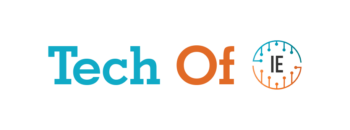Blockchain technology is one of the most innovative technologies of our time, and it has the potential to revolutionize voting systems. The traditional voting system has a lot of flaws, from the possibility of fraud to the lack of transparency, and blockchain technology can help address these issues.
What is blockchain technology?
Blockchain technology is a decentralized digital ledger that records transactions on a secure and transparent network. It is a tamper-proof system that ensures the integrity of data and eliminates the need for intermediaries. Each transaction is recorded in a block, and once a block is added to the chain, it cannot be altered or deleted.
How can blockchain improve voting systems?

Blockchain technology can improve voting systems in several ways. One of the most significant advantages is that it can eliminate the possibility of fraud. With the traditional voting system, there is always the possibility of ballot stuffing, voter impersonation, and other forms of electoral fraud. However, with blockchain technology, every vote is recorded on a secure and transparent network, and each vote is linked to a unique digital identity. This ensures that each vote is authentic and cannot be tampered with.
Another advantage of blockchain technology is that it can increase transparency in the voting process. With the traditional voting system, it is often difficult to track the voting process, and it is not always clear who is responsible for counting the votes. However, with blockchain technology, the entire voting process is recorded on a transparent network, and everyone can see the results of the election.
Blockchain technology can also increase accessibility to the voting process. With the traditional voting system, there are often barriers to voting, such as long lines, limited polling stations, and restricted voting hours. However, with blockchain technology, voters can vote from anywhere at any time using their digital identity. This makes the voting process more accessible and convenient for everyone.
Challenges of implementing blockchain in voting systems
Although blockchain technology has the potential to revolutionize voting systems, there are still some challenges to its implementation. One of the biggest challenges is the issue of scalability. Blockchain technology is still in its early stages, and it is not yet capable of handling large-scale elections. Another challenge is the issue of privacy. While blockchain technology ensures the integrity of data, it does not necessarily guarantee privacy. This means that voters’ identities could potentially be exposed.
Blockchain technology has the potential to revolutionize voting systems by increasing transparency, eliminating fraud, and increasing accessibility. However, there are still some challenges to its implementation, and further research is needed to ensure that it can be used effectively in large-scale elections. Despite these challenges, blockchain technology is a promising solution to the flaws of the traditional voting system, and it could play a significant role in shaping the future of democracy.









